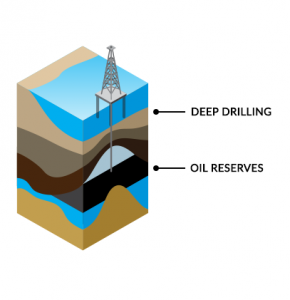All Categories
Featured
Table of Contents
Geophysicist Jobs in Success Australia 2021
This work is progressively contracted out, so consultancies offer another source of work. Consultancy companies vary in size, from extremely small companies to large multinationals. Some consultancies are rather specialised in utilizing particular geophysical strategies or operating in specific places, while others offer a more varied series of services to their customers.
The extraction of gas from landfill websites is another location of work and this might grow in the future. Exploration business might undertake work for construction firms, water business, mining business and ecological companies, so geophysicists might be used in any of these settings. Other employers include: geological surveysgovernment bodies and agenciesuniversities and research institutes.


Jobs might be listed in the oil and gas sector press. Recruitment is impacted by oil price changes and the level of competition for positions varies depending on this. Professions Days, which cover the complete series of geoscience careers and are normally participated in by a number of essential industry employers, are run by The Geological Society.
Geophysical Survey Flashcards in Cannington Aus 2021
A few of the large oil and gas business offer a complete two-year structured training program across the breadth of geophysics, including the chance to experience work in different groups before specialising in one location. Your training may include work on: existing wellsmagnetic and gravitational prospective field information analysisresearchrock analysis. Nevertheless, it's more usual for your preliminary training to be supplied on the job.

There might be a probationary duration throughout which you work alongside a knowledgeable colleague. Competency-based appraisals take location frequently in many firms. In smaller firms, and for scholastic posts, there is unlikely to be any formal training - you'll be anticipated to start work straightaway and pick up abilities as you go along.
If you work for a smaller sized business, you might discover that you need to take obligation for organizing and funding your own development and training. If you have a geology degree, membership of The Geological Society can be helpful for networking and for maintaining to date with the market.
Geophysical Surveys Definition & Meaning In Stock ... in Manning Western Australia 2023
You might likewise find it beneficial to sign up with the PESGB (The Petroleum Expedition Society of Great Britain, which has a geophysics special interest group. After a probationary period, and when you've gained some experience, you might advance to senior geophysicist, then group leader and after that into a senior role in management.
The ease of motion between functions depends upon the business structure. Study at Masters or Ph, D level in a subject associated to geophysics or geosciences might help with your profession advancement and progression. The employment market within the oil and gas industry is really based on price and this might affect your opportunities for career progression.
For experienced geophysicists, freelance consultancy uses a great route for career development. As a geophysicist, you're likely to have several tasks throughout your working life.
Geophysical Survey in Oldsbury WA 2021
From geophysics, it's possible to focus on seismology (completing more training to end up being a seismic interpreter) or to move into associated areas such as engineering geology or danger prediction.
Deciding what to study in college is a tough option. Even if you know that your field of interest lies in science, what program of research study is best for you? If you make the choice to major in physical and life sciences and pursue a profession as a geophysicist, you're preparing for an interesting and rewarding profession.
The first action to accomplishing your goal of becoming a geophysicist is earning a degree. Even for entry-level positions in the field of geoscience, you'll need a bachelor's degree (a geophysicist college degree) from a recognized college or university. Geophysicists need to be able to: analyze rocks, pictures, and other pieces of information perform research study both in the field and in labs develop maps and charts of their findings write reports To achieve all this, students need a specialized education for geophysicist careers.
As specified above, you'll need a bachelor's degree in geoscience or an associated discipline, such as a physical science or a life sciences, to land an entry-level job. But trainees can also prepare by learning topics like: Biology Chemistry Computer technology Engineering Mathematics Physics The above geophysicist majors offer a more generalized technique to a single scientific discipline, however the majority of programs require trainees to take several geology course.
Table of Contents
Latest Posts
Airborne Geophysical Survey in Hocking Aus 2023
Geophysical Survey Services - Geophysical Test Methods in Karrinyup Australia 2020
Geophysicist: Job Description, Duties And Requirements in The Vines Aus 2020
More
Latest Posts
Airborne Geophysical Survey in Hocking Aus 2023
Geophysical Survey Services - Geophysical Test Methods in Karrinyup Australia 2020
Geophysicist: Job Description, Duties And Requirements in The Vines Aus 2020